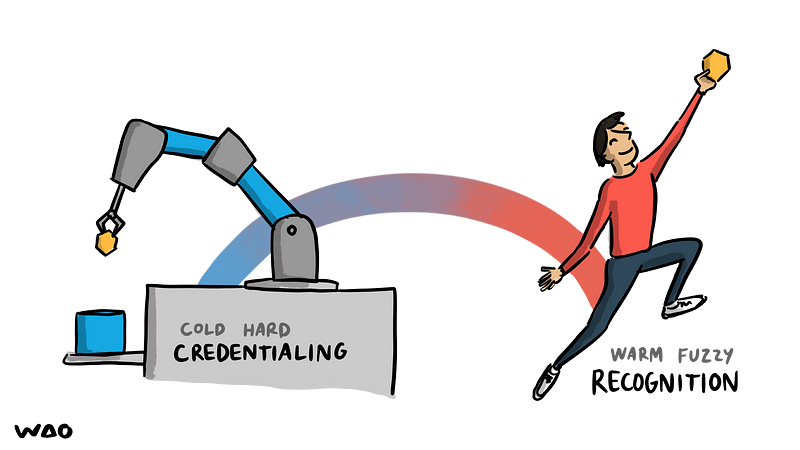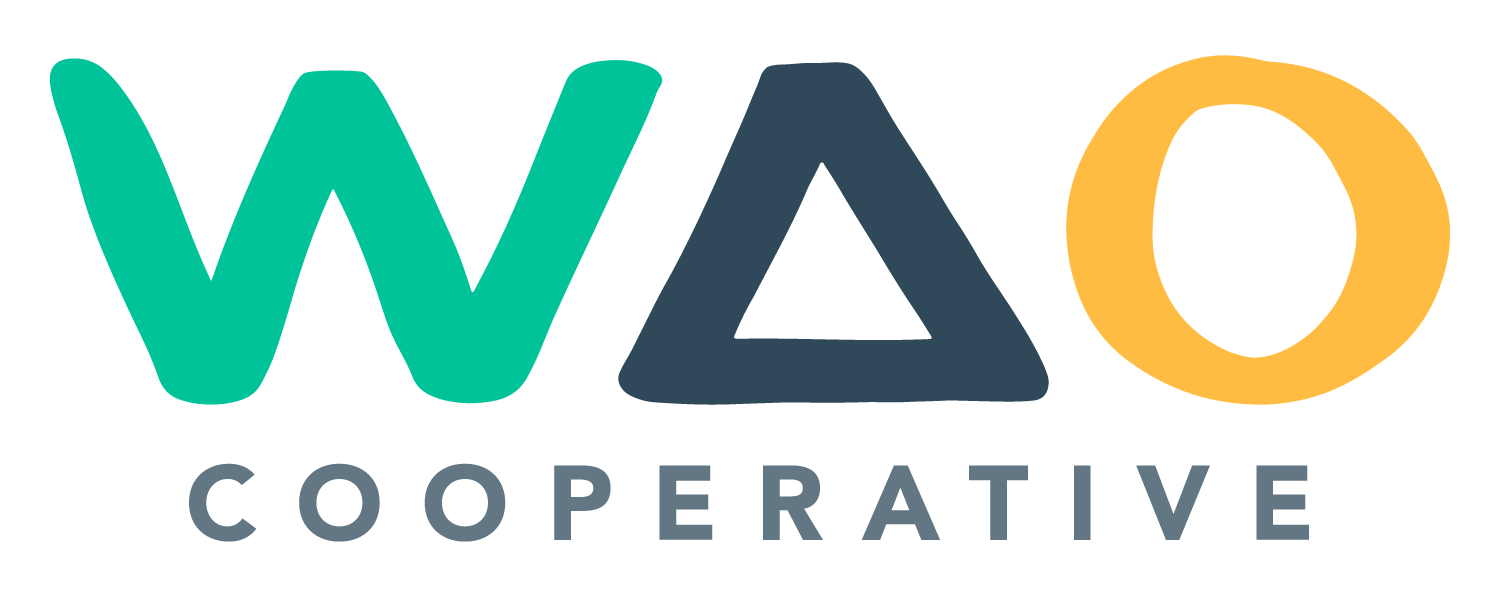Open Recognition is for every type of learning
From cold hard credentialing to warm fuzzy recognition

In this post, we want to explain what we talk about when we talk about Open Recognition. It builds on this previous post, and aims to move from the abstract to practicalities.
So let’s introduce four scenarios and begin by defining terms.
Scenarios
🎓 The first scenario is a student in an educational institution learning in a structured way for the sake of validation or certification. This is what is known as formal learning. It’s objective — ‘cold’ and ‘hard’ rather than ‘warm’ and ‘fuzzy’ to reference the image at the top of this post. The relationship being strengthened is between the individual and the institution. The interesting thing about a credential is not that you’ve got it, but the conversations you have and the doors it opens afterwards.
🎽 The second scenario is an athlete improving as the result of planned activities by their coach. This happens outside of an educational institution but nevertheless involves objectives and support towards defined goals. This is usually referred to as non-formal learning. While this can also be objectively credentialed, what begins to creep in is the importance of recognition. The relationship between the coach and athlete is being strengthened through this recognition. The interesting thing about achieving a personal best is not the time attained but the conversations it leads to and the confidence it inspires.
🌱 A third scenario is someone learning to identify and care for plants in the context of a family out in their garden at the weekend. They don’t have any ‘objectives’ or desire to achieve something specific, but are anyway acquiring knowledge, skills, and understanding. This is often labelled informal learning. While it might feel weird to credential this kind of learning, we recognise it all of the time. For example, we might recognise a nascent interest or skill, buying a young person their own gardening gloves to encourage them. The relationship between the experienced and novice gardener is strengthened by the recognition of an interest. The interesting thing about the gift of gardening gloves is not the gift itself but the conversations it provokes and path it sets someone on.
🎵 The fourth scenario is someone joining a Community of Practice relating to their interest in music technology. They learn things which help broaden and deepen their existing understanding, and co-create knowledge with others. What they learn may be recognised through the use of badges. This is commonly described as open learning. Relationships between community members are being strengthened by the exchanging of badges, making them feel ‘warm’ and ‘fuzzy’. The interesting thing about a recognition badge is not the badge itself but the conversations that happen as a result, and the strengthening of community relationships.
Although we’ve separated out different types of learning above, this isn’t to say that these are the only kinds of learning possible, nor that they happen individually and exclusively. For example, many university courses have elements of open learning as well. Likewise, non-formal learning and informal learning often go hand-in-hand.
Conclusion
We need all to embrace all kinds of learning and develop ways of recognising it in others. We need to develop methods that allow us to embrace our whole self, reinforce positive behaviours in our communities, encourage lifelong learning, and which contribute to the good of society.
The Wikipedia community’s barnstars, which they’ve been issuing for almost 20 years at this point, are a great example. So are the Fedora Project’s badges, which have been around almost a decade as well. These can be seen as credentials, but they’re better seen as recognition.
It’s our hope that individuals, groups, families, communities, organisations, and institutions come to realise that there is more to life than credentialing. Yes, we need credentials. But we can paint a much richer picture of ourselves and our communities by embracing recognition of all different forms of learning. As Serge Ravet has said, we need to be recognising practices as much as recognising competencies.

Discussion